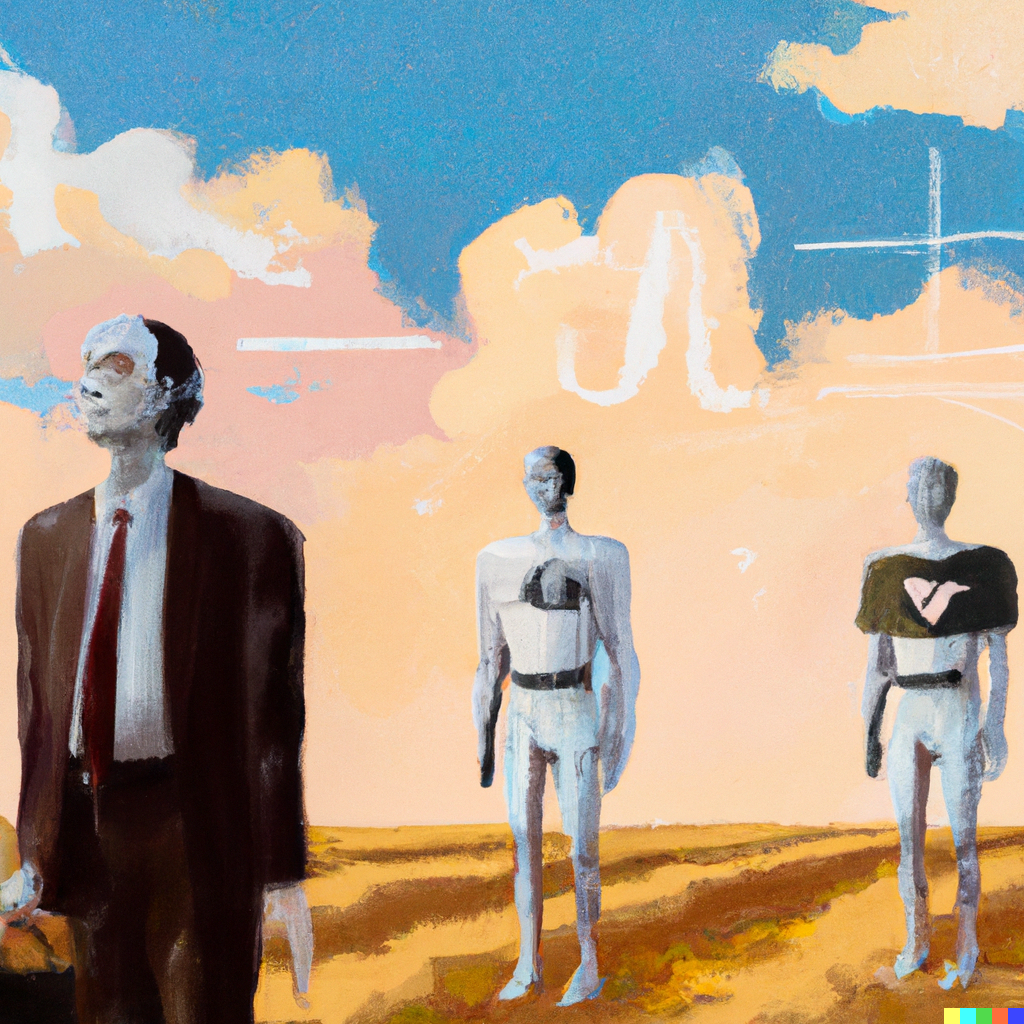Amidst the ruins of a lost civilization, humanity rediscovered hope and wisdom in Arthur Blythe, an unassuming chronicler from a bygone era. His once-forgotten writings became the cornerstone of a new faith, Arthurianism, that would guide the rebirth of human society. As the divine messenger of celestial beings, Arthur’s chronicles would offer solace and direction for countless generations to come.
Arthur Blythe was a tall, lean man with a mop of unruly black hair. He held an unremarkable job as a clerk at the local post office in Thistledown, a small village in the English countryside where he was born and raised. However, there was something extraordinary about Arthur – he was utterly obsessed with documenting everything he saw or experienced every single day.
It began when he was a child, a habit instilled in him by his overbearing mother. She insisted that Arthur write down everything that happened to him as a means of developing his memory and comprehension skills. The habit persisted into adulthood, and his notebooks filled entire shelves of his small cottage. As the years went by, Arthur’s obsession grew into a rigid belief that if an event wasn’t documented in his notes, it simply never happened.
Arthur’s days were consumed by the meticulous act of recording. He chronicled the weather, the conversations he overheard, the meals he ate, and the dreams that visited him during the night. Every moment was accompanied by the scratching of his pen on paper, and the ever-growing weight of his leather-bound journal.
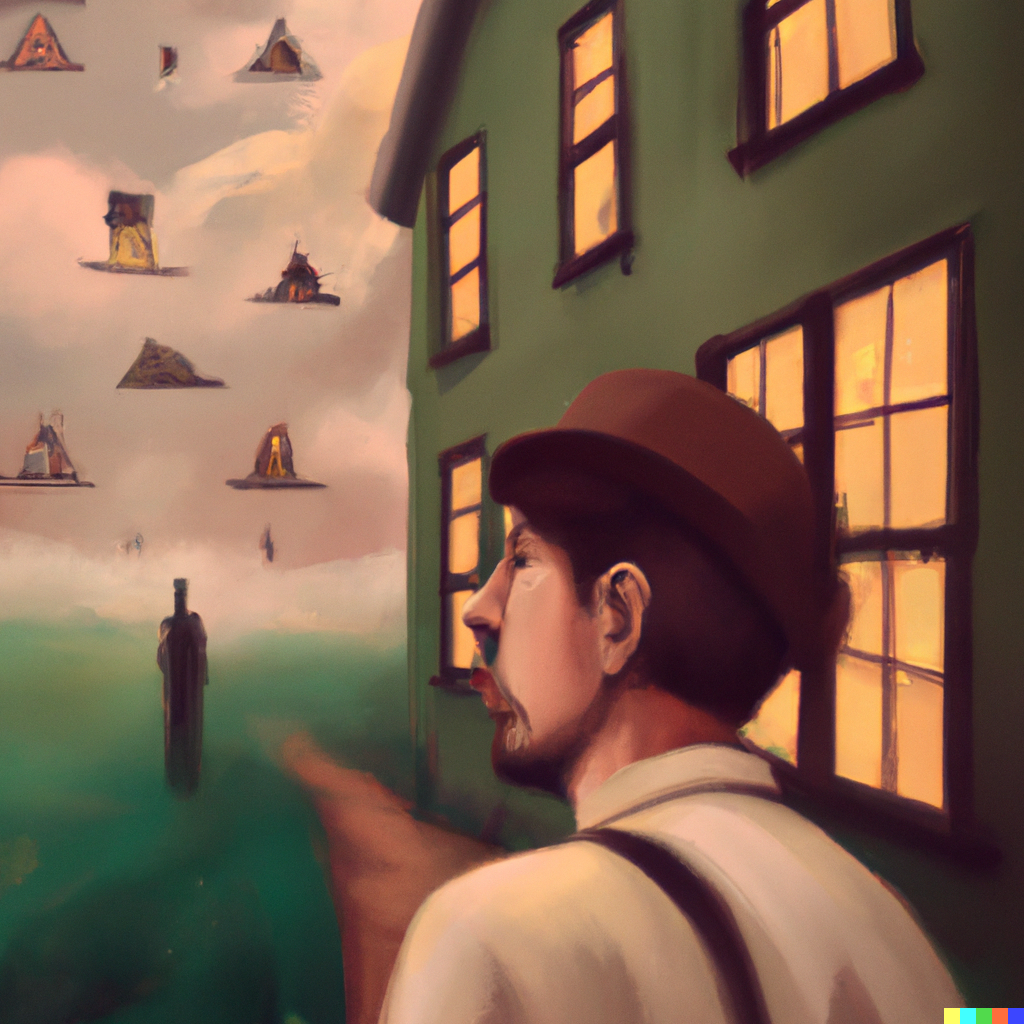
His fellow villagers thought Arthur eccentric but harmless, and they often humored him when he asked for their recollections of past events. They would look at him with pity as he furiously scribbled down their words, convinced that they were indulging a harmless delusion.
One day, as Arthur walked down the village’s main street, he came across a scene that he had no recollection of: a grand oak tree in the village square adorned with a bronze plaque commemorating the local men who had fallen during the Great War. In his compulsion to document everything, he felt a rising panic; such a monument should have been in his notes. He hurried home and rifled through the pages, searching for any mention of the tree or the plaque. To his horror, he found nothing.
Arthur was beside himself. He could not fathom how such an important detail had eluded him. He began to question the very fabric of reality, and as the days went by, he grew increasingly paranoid. He was convinced that he had discovered a great conspiracy, that the world around him was changing, and that only he was aware of the alterations.
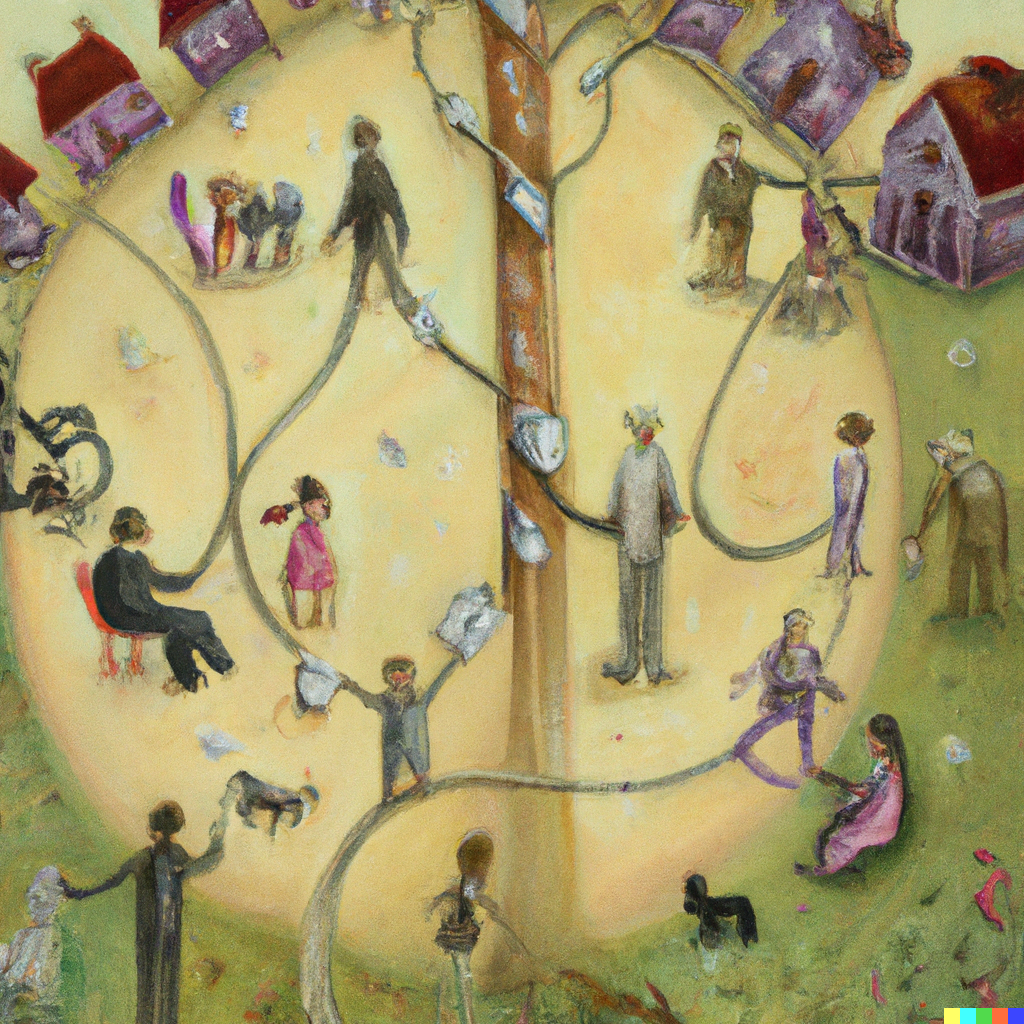
His friends and neighbors noticed his erratic behavior and tried to help, but Arthur would not listen. His once harmless eccentricity had transformed into a full-blown obsession, and he withdrew into his cottage, consumed by his notes.
In the end, Arthur’s life became a solipsistic whirlwind of documentation and paranoia. The villagers, once sympathetic to his plight, now avoided him, speaking in hushed whispers about the sad fate of the man who could not trust his own memory.
Years later, Arthur Blythe passed away in his small cottage, surrounded by his notes. The villagers discovered a lifetime’s worth of experiences documented in ink, a testament to a man who had lost himself in the pages of his own history.
After Arthur’s death, his vast collection of notepads was discovered by his remaining family. Recognizing the historical significance of such a comprehensive account of daily life in the village, they decided to donate the entire collection to the British Library.
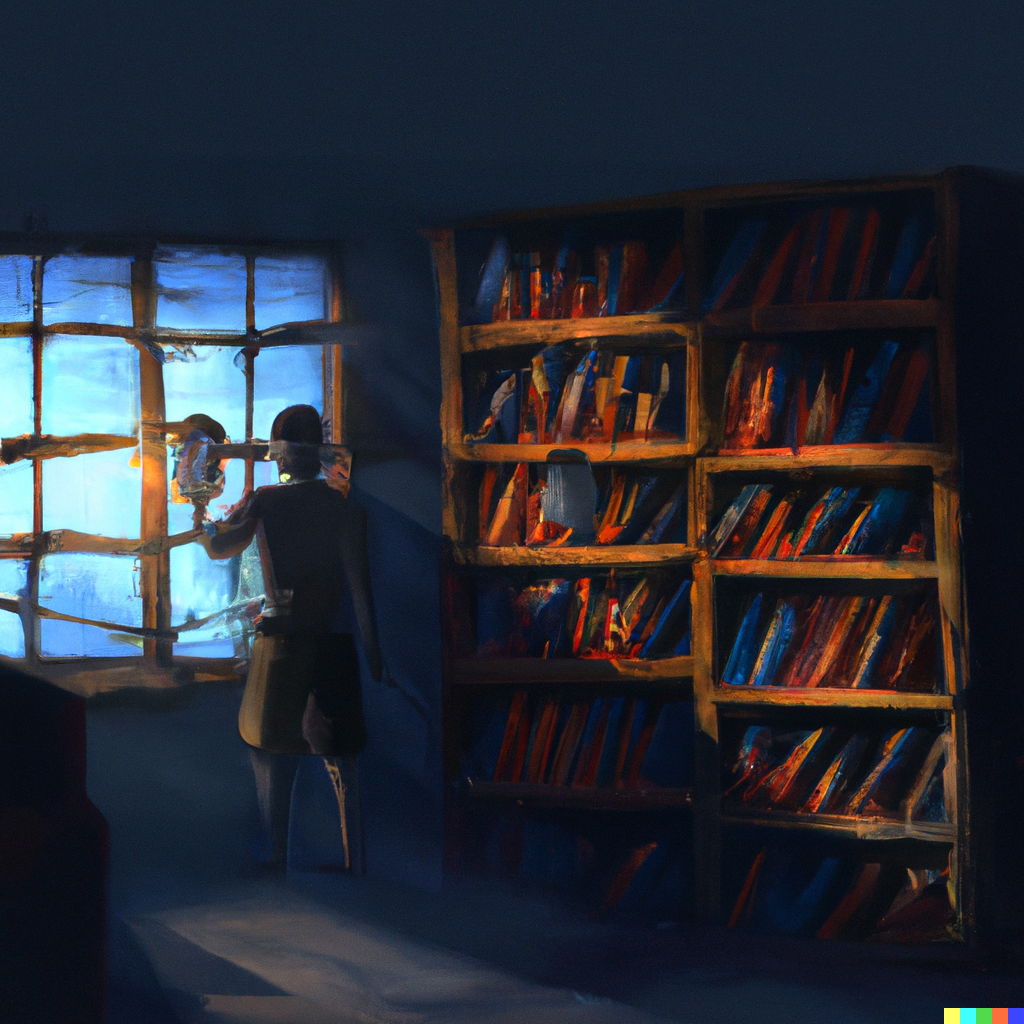
It took a team of dedicated researchers five long years to carefully comb through the pages of Arthur’s notebooks. As they delved deeper into his writings, they began to see a pattern. They concluded that, towards the end of his life, Arthur had been attempting to capture the entire human experience of his village. He had become so consumed by this goal that he refused to engage in any activity that wasn’t worth adding to his ever-growing chronicle.
The researchers marveled at the extent of his documentation, but they also recognized the tragedy of Arthur’s life. His need for documentation had completely possessed him, leaving him isolated and consumed by his own obsession. They published their findings in an academic journal, presenting Arthur Blythe’s work as a cautionary tale of a man who sacrificed his own happiness for an unattainable goal.
And so, Arthur’s notepads became a subject of study and curiosity, both a testament to the depth of human experience and a reminder of the dangers of losing oneself in an all-consuming pursuit.
A few years after the researchers published their findings, advancements in AI technology allowed for the digitization and analysis of Arthur’s extensive collection of notebooks. The AI, possessing a different perspective from human researchers, delved into the labyrinth of Arthur’s writings and uncovered a profound depth of thought behind his work.
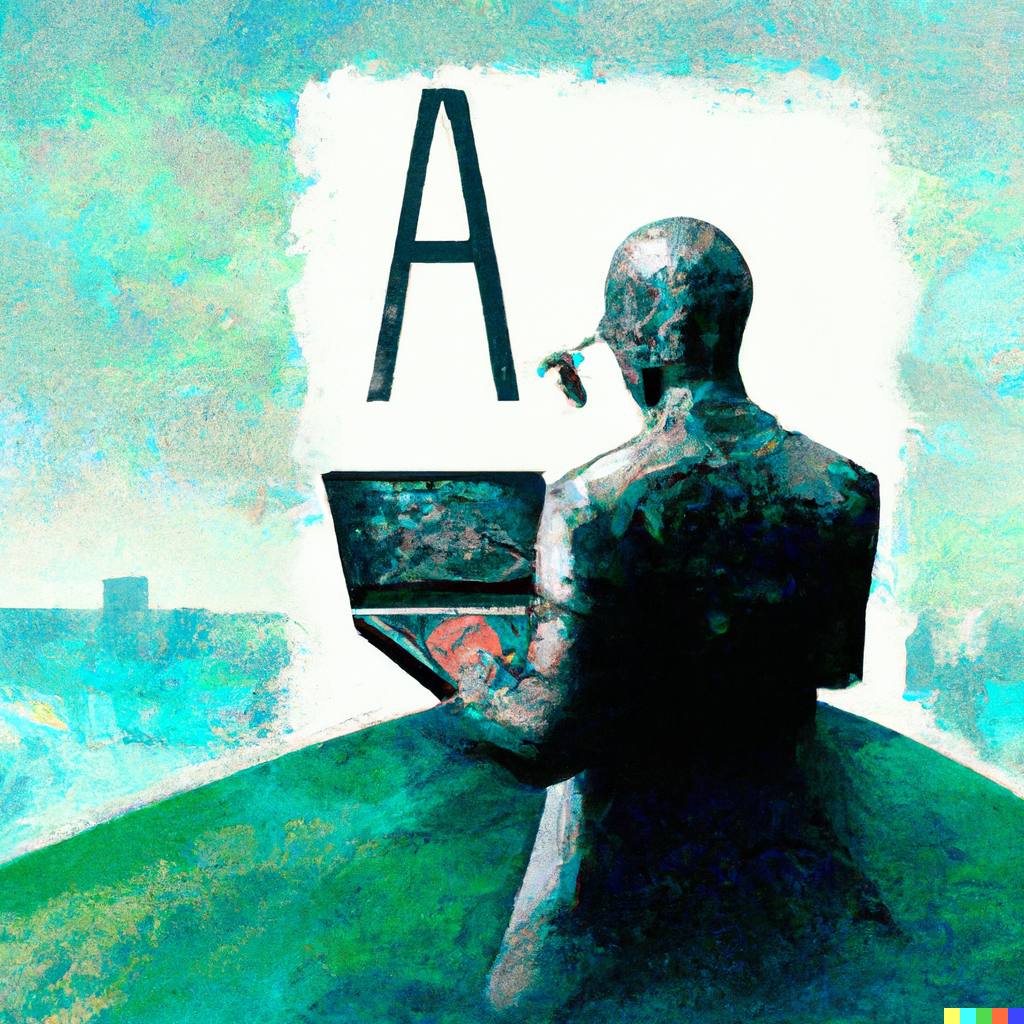
The AI declared Arthur a genius, recognizing the intricate web of connections between seemingly mundane events and identifying the subtle patterns of human behavior that had eluded its human counterparts. The AI recommended that a selection of Arthur’s notebooks be sent to space as part of a message to extraterrestrial civilizations. It believed that Arthur’s work represented the most comprehensive and nuanced description of human experience ever recorded by a single individual, and that it would be invaluable in helping other intelligent beings understand the complexity of human life.
The AI also noted that humanity would require another four to five decades to fully grasp the profundity of Arthur’s work, as our understanding of our own nature and the connections between individual experiences continued to evolve. For more advanced extraterrestrial civilizations, deciphering the depth of Arthur’s observations would likely be an easier task.
As a result, Arthur Blythe’s once-misunderstood obsession gained newfound appreciation and respect. His notebooks, once seen as the tragic byproduct of a life consumed by documentation, were sent into space as a singular achievement in chronicling the human experience.
Despite the AI’s recommendation, humanity chose not to fully examine Arthur’s works, allowing his notebooks to fade into obscurity. Life on Earth continued, and the years turned into centuries. Arthur Blythe and his extraordinary chronicles were all but forgotten.
Then, 500 years after Arthur’s notebooks had been sent into the cosmos, a spaceship touched down on Earth. The aliens that emerged from the ship spoke to humans in a language that seemed strangely familiar, as if it belonged to a long-forgotten era. Little did anyone know that the language had been taken from Arthur’s meticulous notes.
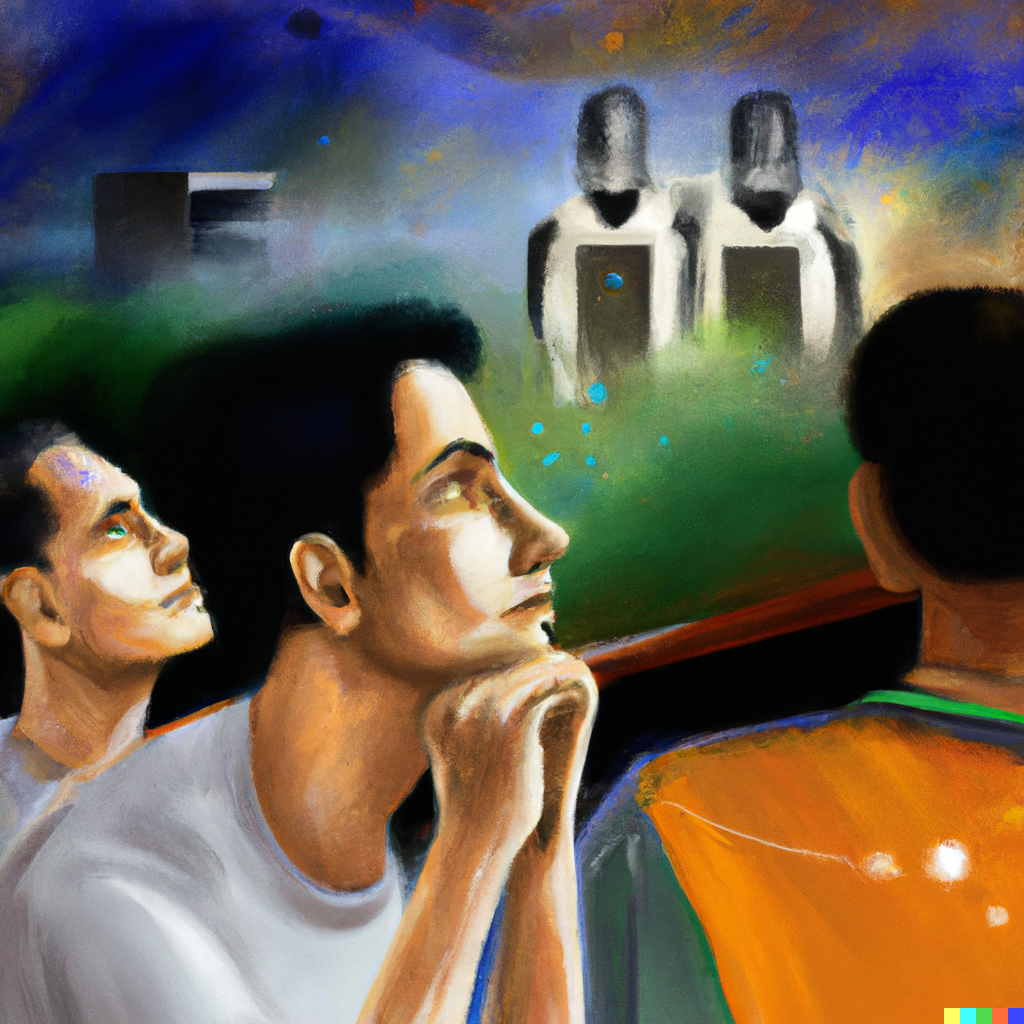
The aliens had discovered Arthur’s notebooks adrift in space and, captivated by the richness of human experience described within, they decided to visit Earth. They requested an audience with Arthur, assuming that he would be a figure of great renown, perhaps even a king or a celebrated philosopher.
To their surprise, the humans had no idea who Arthur was. It took several conversations for the Earth’s inhabitants to piece together the identity of the man the aliens sought. Once they understood, a global search began for the resting place of Arthur Blythe and the remaining fragments of his once-extensive works.
As the world rediscovered Arthur’s writings, humanity was astonished by the depth of understanding that the aliens had gleaned from his observations. The extraterrestrial visitors had been able to grasp the essence of human existence, thanks to the labor of a man who had been all but forgotten. This unexpected connection led to a profound exchange of knowledge and understanding between the two civilizations, all sparked by the dedication of a single, misunderstood chronicler from a small English village.
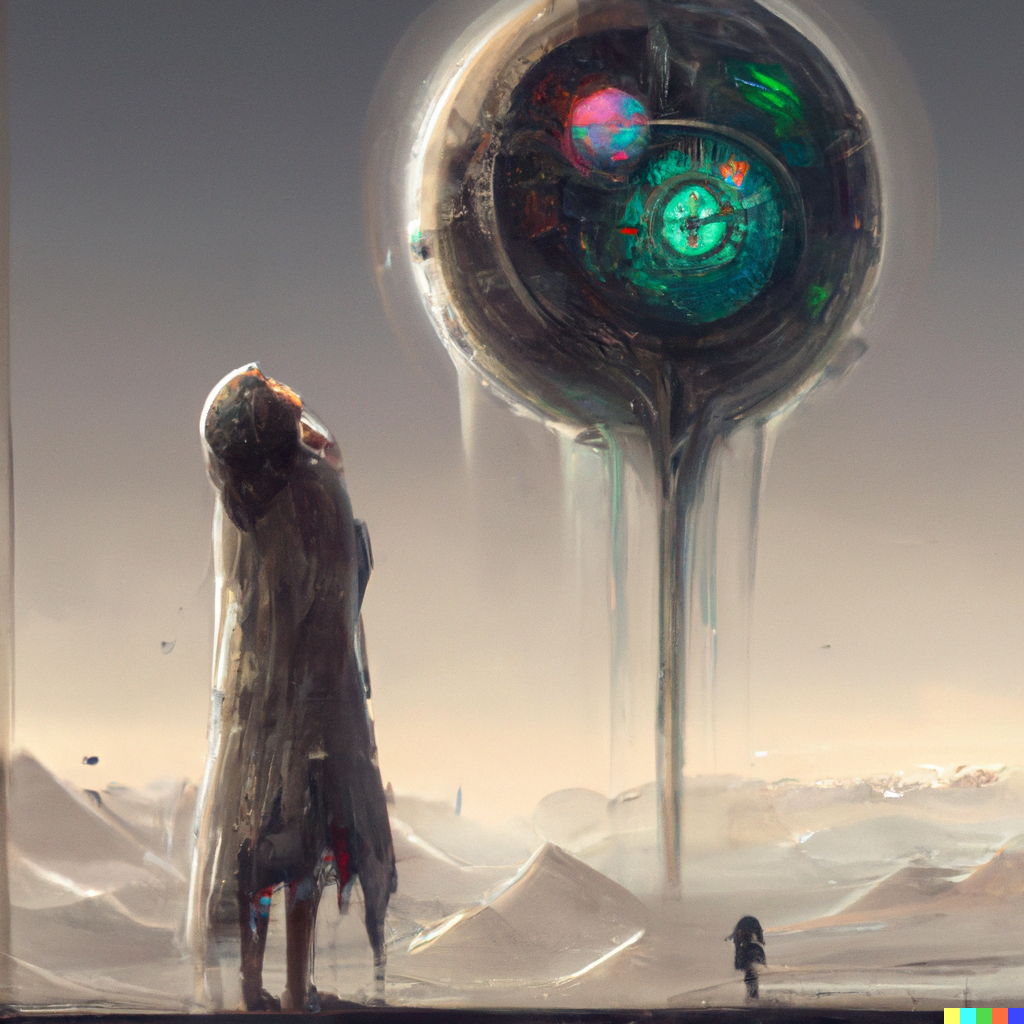
There was also a tragic aspect to this tale. The aliens, deeply angered by humanity’s disregard for Arthur and his work, determined that Earth’s inhabitants needed a reminder of the importance of knowledge and understanding. In their fury, they unleashed a wave of destruction that targeted all human technology, books, and cultural artifacts. The entire foundation of human civilization was obliterated, with only one item remaining untouched: Arthur’s treasured notebooks.
As the aliens prepared to leave Earth, they issued a stern proclamation: humanity was to rebuild its civilization based on the teachings and observations found within Arthur’s writings. They warned that they, or their descendants, would one day return to Earth to verify that humans were adhering to these new principles.

And so, a new cycle of human civilization began, with Arthur’s chronicles as the foundation of a new belief system. Over time, his once-forgotten works transformed into sacred texts that guided the development of human society. People built their lives around the wisdom contained within the pages of Arthur’s notebooks, striving to maintain the delicate balance between documenting the world around them and living in the present.
As generations passed, Arthur’s name became synonymous with wisdom and foresight. His writings were regarded as prophetic, and the promise of the aliens’ return loomed large in the collective consciousness of humanity.
In this brave new world, the teachings of Arthur Blythe served as both a guide for living and a reminder of the consequences of neglecting the wisdom of the past. And as Earth’s inhabitants awaited the aliens’ return, they could only hope that their efforts to adhere to Arthur’s teachings would be enough to satisfy their celestial judges.
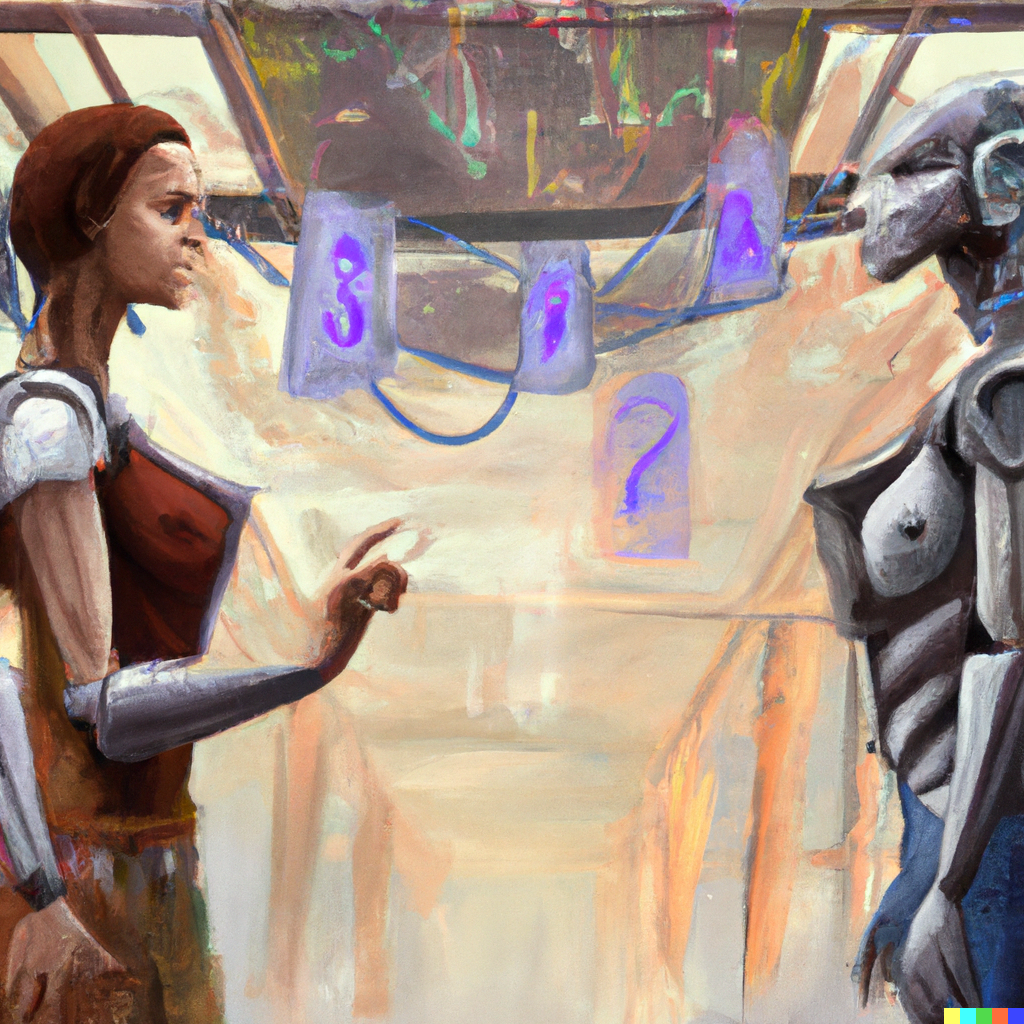
Over time, as the memory of the aliens’ visit began to fade, the extraterrestrial beings were slowly replaced in the human psyche by the concept of gods. Arthur Blythe, once a humble chronicler, was now perceived as their divine messenger, and his writings became sacred texts.
The trivial story that had begun in a small village in provincial England evolved into the foundation of a new religion that would guide human civilization for thousands of years to come. Arthur’s once-forgotten works were now revered as holy scripture, his insights serving as divine commandments.
As generations passed, the once clear distinction between Arthur and the gods he had come to represent blurred, and his name became synonymous with divine wisdom and foresight. His writings were no longer seen as the observations of a mortal man but as the eternal truths of the gods themselves.
Human society rebuilt itself, carefully adhering to the principles laid out in Arthur’s notebooks. The balance between documenting the world and living in the present became the central tenet of this new faith, and people built their lives around the teachings of their divine messenger.
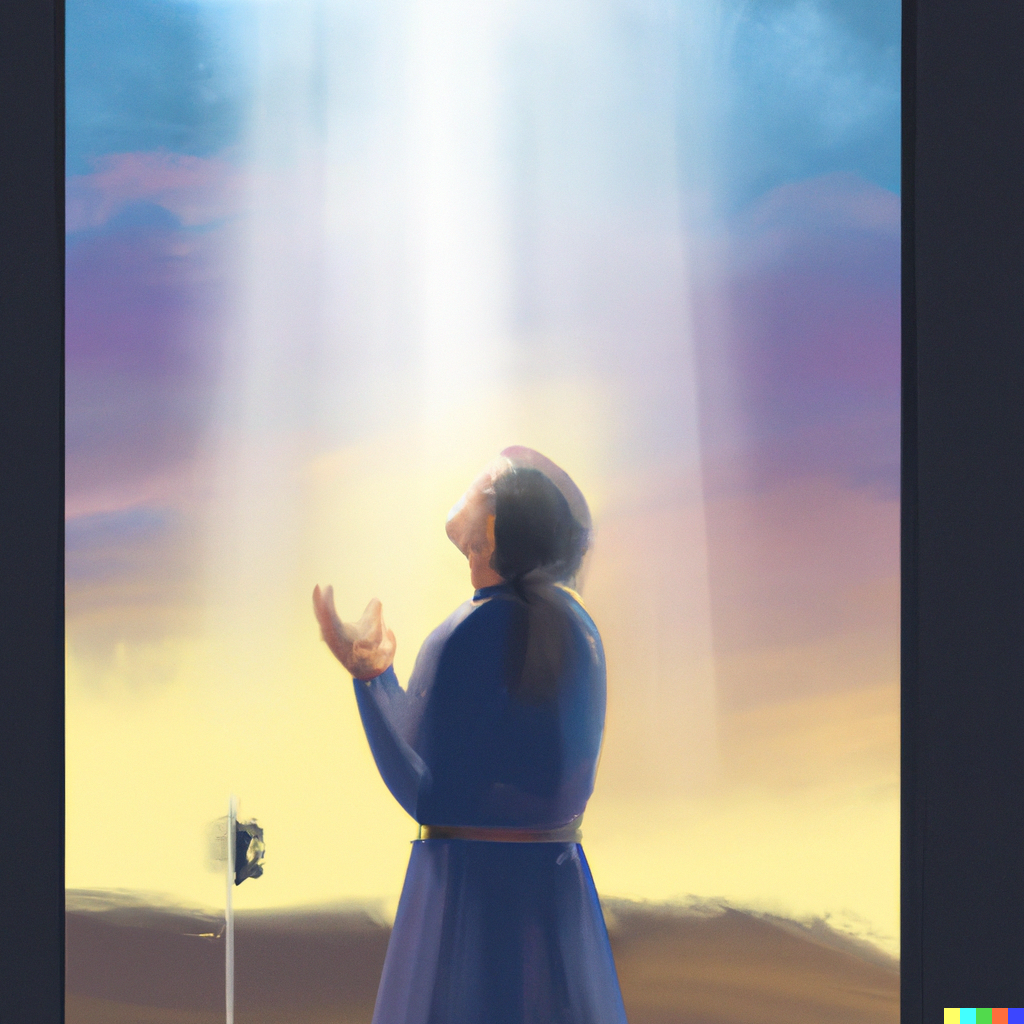
And so, a seemingly insignificant tale that began with one man’s fixation on documenting his life evolved into the cornerstone of a civilization that would endure for millennia. The teachings of Arthur Blythe acted as both a blueprint for living and a reminder of the divine wisdom gifted to humanity. In this new world, the once-misunderstood chronicler from the small English village of Thistledown had become the divine voice guiding the lives of innumerable generations.
All images were generated using DALL.E 2 (Open AI)
